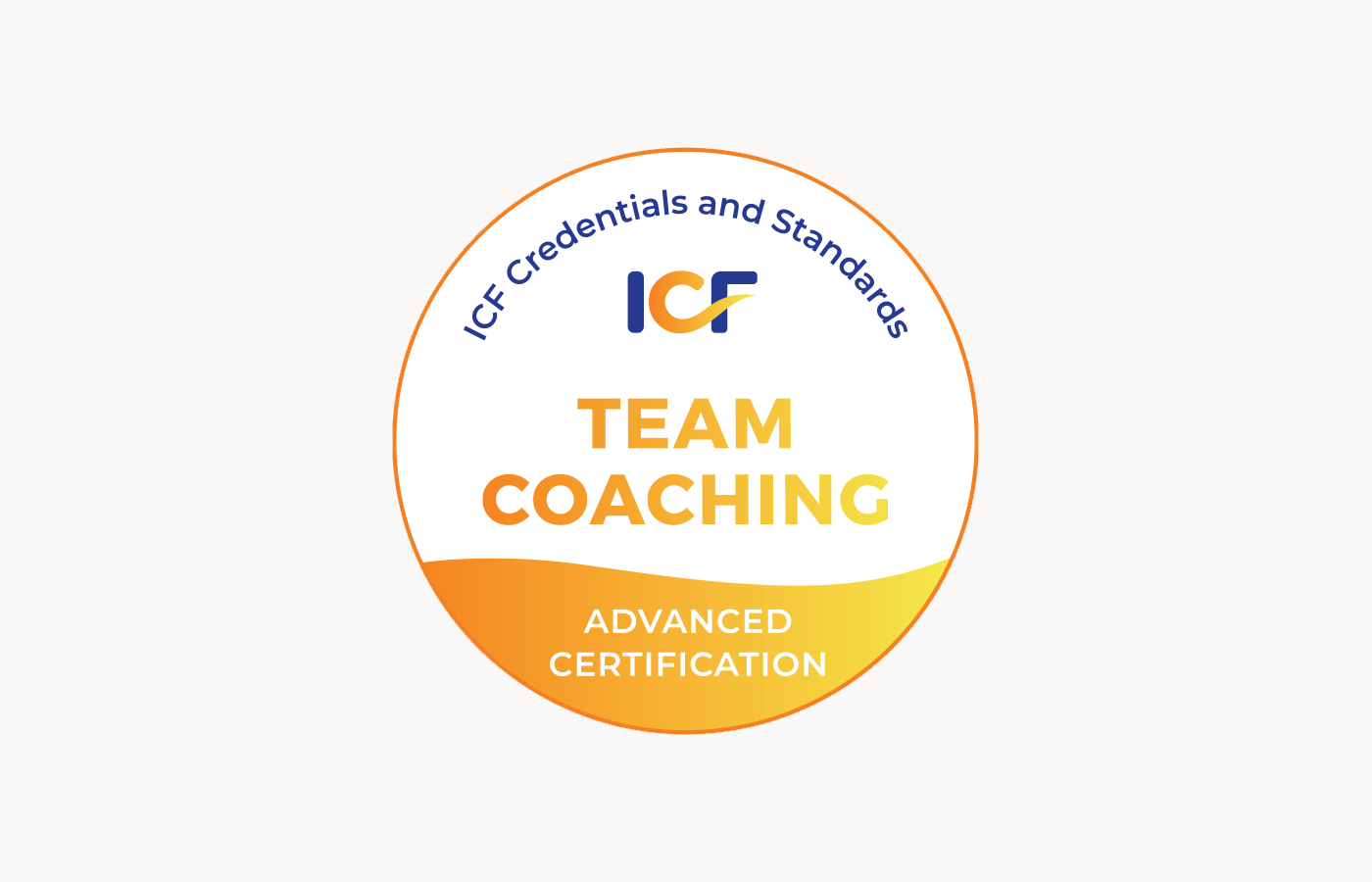Advanced Certification in Team Coaching — International Coaching Federation
Is this article a slight humble brag? Maybe a little bit.
But more than that, it is an appeal to myself and those around me that a propensity for lifelong learning can be taxing at times, yet is always worth the pursuit. This particular chapter was more than just learning. This was a very challenging examination of aptitude and skill by one of the most decorated coaching conglomerates out there: The Advanced Certification in Team Coaching from the International Coaching Federation.
And you know what? I want to encourage myself, and you, to celebrate our successes publicly and cheer each other on when we pass through the big milestones of our lives. Besides, this is also a great opportunity to tell you what team coaching is actually all about. Let’s go!
 I took the final exam during the December holiday period of 2023. The preparation however started long before that. I started planning for this credential in November of 2022, performed a number of tasks to demonstrate my mastery of team coaching and concluded the required supervision hours in June 2023. But truly this was a review of cumulative knowledge, skills and behaviors.
I took the final exam during the December holiday period of 2023. The preparation however started long before that. I started planning for this credential in November of 2022, performed a number of tasks to demonstrate my mastery of team coaching and concluded the required supervision hours in June 2023. But truly this was a review of cumulative knowledge, skills and behaviors.
The certificate is specific to a particular type of coaching: team coaching (more on that below), so let’s dive into what this Advanced Certification in Team Coaching is actually about.
What It Takes
This is a certificate for already advanced coaches. It examines and tests a variety of interconnected skills that one cannot learn from a textbook, they have to be experienced. Here are some that I found particularly critical to any successful team coaching endeavor:
Managing Complex System Dynamics
This point is very near and dear to my heart and the focus lies on the true meaning of the word “complex.” Most human systems are complex by nature, rather than complicated. Where in complicated systems we can, with study, discern clear cause-and-effect relationships and tackle problems with tried and true solutions, complex systems often lack this predictable causality. Yes, there are guideposts (e.g. if you carelessly challenge someone, they may get defensive), but human systems challenge us with new surprises on a daily basis. The approach you chose yesterday may not work today, as someone is having a bad day or returns to the session with low self-esteem. Crucially, the emphasis is on the word “system” itself. Team coaching looks not at the individual as the key pillar, but at the nature of the relationships between multiple individuals. How do they coalesce, how does conflict arise and get treated, where are forces that build or erode trust?
Partnering With a Variety of Stakeholders
Partnerships are everything when orchestrating teams in a way that promotes collaboration and success. Conventional command and control structures don’t work, and partnership agreements that are built on equality and consensus are the way forward. Since many organizations I work with rely on classic matrix hierarchies, forging these partnerships requires dedication, sensitivity and approaches tailored to each and every setting. An additional challenge lies in maintaining the necessary boundaries with various stakeholders: the team in question, the head of the pyramid, as well as any potential sponsors for the coaching program, e.g. a VP or HR head. Inevitably, your client and recipient of the coaching benefit is the team. Yet, you have other forces tugging at you and establishing clear boundaries and contracts from the start will allow the coaching program to remain orderly and “clean.”
Supporting Teams to Develop Effective Communication
Language shapes the way we perceive the world around us. That is undoubtedly true for how we perceive each other, the other’s motivations and the intent of their actions. Organizational effectiveness programs often focus on “ways of working” to streamline meetings and help people “get (even) more done.” In reality, I find that we must place a much greater focus on “ways of communicating” to nurture rich relationships and help people “lead with trust and compassion.” These are the attributes that will inevitably give an organization a creative and competitive edge.
Promoting a Team’s Autonomy
This is an interesting competence to grasp and the penultimate goal of coaching. As coaches, we strive for the wellbeing of the people or teams we work with and care for. The trick is to bake the concepts for sustained wellbeing into the fabric of a team, so that even when you inevitably leave them to their own devices, they will thrive. I call that sustainability for resilient teams. The world is more and more complex and unpredictable. In order to prepare the teams for an autonomous life, we must give them the tools and supervised opportunities to work out assessments and problem solving strategies on their own.
Keep learning, keep growing and keep sharing so that we may all learn and grow together.
Want to know more about the world of leadership, coaching and career development?
Need help finding your own voice and developing your leadership qualities?
Contact me to set up a consultation.
Previous article:
← Leading a Dream: Positive Team Dynamics Mean Success
Next article:
Bad Reception? When Signals Get Distorted, Culture Starts to Crumble →
